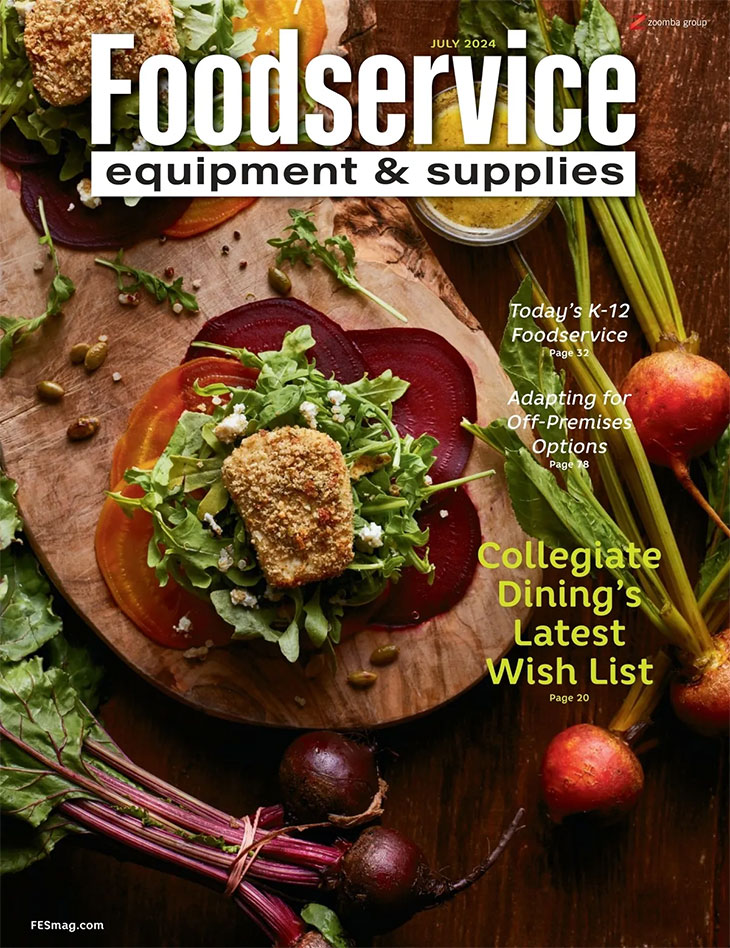A sometimes overlooked subset of college and university dining, two-year community colleges and technical schools are experiencing the same uncertainty right now as their four-year counterparts. But with COVID-19 fears and safety protocols dashing students’ hopes for a traditional residential campus experience, and with community colleges offering affordability, the ability to transfer credits, and the option of living at home until the dust settles, the segment could be a bright spot.
A number of operators have shifted their business models to at least temporarily include meal kits and pantry items in an effort to increase revenue. This follows a trend that was in full bloom prior to the pandemic. By 2022, research firm Statistica expects the meal kit market to more than double, reaching $11.6 billion dollars. In the last half of 2018, 14.3 million households purchased meal kits, up from 3.8 million households in 2017.
How can operators create excellent experiences when serving guests in a tent in the parking lot? What’s the future hold for self-serve foodservice options? Will foodservice operations shrink or grow in the future? These questions, and many more, were on the minds of FE&S readers during the magazine’s 2020 Consultants’ Roundtable Webcast.
The brakes slammed business to a halt for many food trucks early on in the COVID-19 crisis as the types of business and social gatherings which drive traffic also came to a screeching stop. But in many states, food trucks, like other off-premises foodservice operations, have been deemed essential. They continue to serve customers (queued up 6 feet apart) and have stepped up to provide mobile foodservice solutions for healthcare and other frontline workers.
Restaurant industry performance continues to show steady, incremental progress from one week to the next.
These upgraded food court-style formats provide operators with a low barrier to entry, which may be the saving grace of concepts in a post-pandemic foodservice environment, even if communal dining trends fade.
Wood Stone Corporation hired Melissa Enge to serve as regional sales manager for the European, Middle Eastern and African markets for the manufacturer of stone hearth and specialty commercial cooking equipment.
Even a pandemic such as COVID-19 can’t completely take away emerging chains’ appetite for growth. Moving forward, though, these multiunit operators will continue to adjust their designs and equipment packages to deliver brand-defining experiences for customers, whether they choose to dine on- or off-premises.
The foodservice industry is a relationship business. It is said so often that it almost sounds cliché. But one foodservice consultant is banking on the relationships he’s developed over the past 20 years combined with his energy and work ethic to serve as the foundation for success for a new consulting firm.
With health and food safety on the forefront of consumers’ minds today, salad would seem a safe and smart bet. Yet, when it is available in a self-serve format, diners may now take pause.
Longtime foodservice consultant Ronald Kooser, FCSI, passed away May 29, 2020. The 80-year-old Kooser was a principal at foodservice consulting firm Cini•Little.
Restaurants may have cleaning and sanitation procedures and training in place, but to be effective, operators need to properly enforce these steps. Inspection reports made public by the Center for Science in the Public Interest as well as word of mouth via social media serve as big incentives to making sure staff follow the necessary steps to the letter.
There’s no doubt bar operations will eventually spring back to life when communities allow these businesses to reopen. That’s because bars have played a prominent role in American socialization dating all the way back to the colonial period. By surviving Prohibition and even the notorious fern era, bars have proven resilient time and time again. That said, when bars do come back online, bartenders will likely find the post-pandemic world to be different from the last time they shouted last call.
Kathleen Held was promoted from chief marketing officer to chief executive officer for Cini•Little International, a Maryland-based foodservice consulting firm.
Golden Chick’s robust strategy for the brand includes a goal to have 500 Golden Chick units open by 2030. That would more than double the size of this quick-service chain, which currently operates 187 stores serving its signature fried chicken.
Sushi concepts and inclusion on menus keep growing across the country, as the on-trend, healthful cuisine continues to gain widespread appeal.




